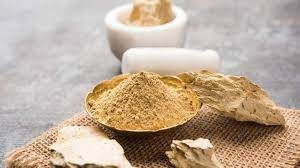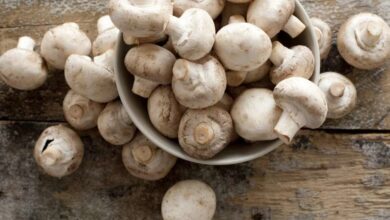Even if you accidentally bring these fruits and veggies with you, they will go bad in the refrigerator
It’s important to understand that not all fruits and vegetables can reside harmoniously in your refrigerator. Some pairings might result in diminished freshness and early deterioration. You should stay away from these potentially harmful combinations to maintain your produce at its best.
The Banana War, for instance
Bananas vs. the World In the realm of storing fruits and vegetables, bananas are often the bad guy. Why? The reason for this is because they manufacture ethylene. A hormone produced naturally by plants called ethylene hastens the ripening of fruits. So you’re in for a race against time if you combine bananas with other fruits like avocados, apples, and tomatoes. These ethylene-sensitive fruits will mature far more quickly than you would want. Keep bananas apart from other fruits to avoid this.
2. The Berry Puzzle
Broccoli vs. Berries Strawberries, blueberries, and raspberries are delicious fruits to include in your diet, but broccoli is their sworn enemy. As a result of the natural gases that broccoli emits, berries might get moldy and mushy considerably more quickly. Berries should be kept separate from broccoli in the refrigerator to maintain their freshness.
3. The Onion-Potato Conflict
potatoes vs onions Although potatoes and onions are a typical culinary pair, their relationship should finish in the pantry rather than the refrigerator. Why? Onions release fumes and moisture that may make potatoes sprout. Those green potato sprouts might be poisonous in addition to being unattractive. Separately storing potatoes and onions can help both products last longer.
The Orange Sabotage
Oranges against other fruits Citrus fruits like oranges, lemons, and grapefruits are bursting with vitamin C and have a reviving acidity. They may, however, adversely affect the freshness of other fruits due to their acidic nature. Fruits like pears, peaches, and apples may decay more rapidly as a result of the acid. To keep each citrus fruit fresh, keep it apart from other fruits.
5. The Mysterious Avocado
Producers of ethylene vs. avocados Although they are a popular addition to salads and guacamole, avocados have a special sensitivity to ethylene. They will mature more quickly than you would want if you keep avocados next to ethylene generators like apples, bananas, or even other avocados. Keep avocados apart from ethylene-producing fruits in order to regulate the ripening process and enjoy them at the optimal level of maturity.
The Leafy Green Conundrum
Fruits against Leafy Greens For salads and smoothies, leafy greens like spinach, lettuce, and kale are a need. Their one flaw is that they may absorb scents and wetness. Fruits that are kept close to them risk becoming withered and nasty. Store your greens in a separate area of your refrigerator from your fruits to keep them crisp and fresh.
The Tomato Paradox, No. 7
Freshness vs. tomatoes In a strange way, tomatoes taste their finest when they are not chilled. The texture and taste of tomatoes may be harmed by the refrigerator’s low temperatures. Store them at room temperature, ideally on your kitchen counter, to get the most flavor out of this adaptable fruit (yes, it’s a fruit!).
8. The Melon Incident
Melons vs. the world Melons, including cantaloupe and watermelon, are scrumptious summertime snacks. But since they also release ethylene, they may hasten the ripening of other fruits. Keep melons in a separate area of your refrigerator to avoid a fruit riot.
9. The Battle between Honey and Garlic
Honey vs. Garlic When it comes to giving your food taste, garlic is the unsung hero of the kitchen. However, if kept together, its strong smell may contaminate honey and alter its flavor. Keep your garlic and honey in separate containers to prevent taste blending.
10. The Battle of the Carrot and Green Bean
Green beans vs. Carrots Despite being one of the healthiest vegetables, carrots have a little flaw. They emit ethylene, which may hasten the deterioration of green beans. Green beans and carrots should be kept in separate drawers or containers to preserve their freshness.
11. The Mysterious Mushroom
Everyone vs. Mushrooms Numerous cuisines use mushrooms as a versatile component. They could, however, be susceptible to wetness. They risk spoiling if you store them in a plastic bag that retains moisture. To keep them dry and fresh, use a paper bag or a piece of cloth instead.
12. The Cucumber Plot
Tomatoes vs. cucumbers Salads often use tomatoes and cucumbers as components. However, since they are sensitive to ethylene, cucumbers stored alongside tomatoes may ripen too soon. Separately store the two items to maintain their freshness.
13. The Eggplant Situation
Fruits vs. Eggplants Eggplants are ethylene producers and are famous for their use in recipes like eggplant parmesan. The fruits may ripen more quickly than you’d like if you keep them alongside fruits. To regulate the ripening process, keep eggplants away from fruits.
Dispute Over Stone Fruit
Everything vs. Stone Fruits The term “stone fruit” refers to peaches, plums, and cherries. They need to be protected against ethylene-producing foods like apples, bananas, and avocados since they are sensitive to it. The secret to keeping their quality is separation.
The Pepper Parley 15.
Fruits vs. Peppers Red, green, and yellow bell peppers are renowned for their taste and striking hues. When they are kept together, however, they might absorb moisture from the fruits, which reduces their freshness. Store fruits and peppers separately to maintain the quality of both.
The Spinach and Cheese Battle, No. 16
Cheese versus spinach Cheese is a popular ingredient in many meals, while spinach is a nutrient-rich green. However, cheese’s texture may be impacted by the moisture in spinach. Separately place both ingredients in your refrigerator to maintain their freshness.
The Asparagus Enemy 17.
Asparagus vs. the World The easiest way to keep those tasty, thin asparagus stalks is wrapped in a moist paper towel. This keeps them fresh and helps avoid wilting. Keep them away from other goods that can contain too much moisture while keeping them.
The artichoke anomaly (18.
Everything vs. the artichoke Although artichokes are unusual and tasty, their particular flavor may alter the flavor of other meals. To avoid contaminating other foods with their taste, keep them apart.
19. The Kiwi Problem
Bananas vs. Kiwis Kiwis are ethylene-sensitive due to their vivid green flesh and small, black seeds. They may ripen too rapidly if kept in the same storage as bananas. Kiwis should not be consumed with ethylene-producing bananas to get the most flavor out of them.
Twenty. The Pineapple Situation
Fruits against Pineapples With their sweet, tropical flavor, pineapples release ethylene, which has the ability to hasten the ripening of other fruits. Store pineapples apart from other fruits to preserve their freshness.
Being aware of these fruit and vegetable rivalries can help you keep your produce fresher longer and save food waste. Your favorite fruits and vegetables may retain their taste and freshness for a long time by being stored properly. To ensure they remain at their best for as long as possible, remember to separate these foods in your refrigerator.







